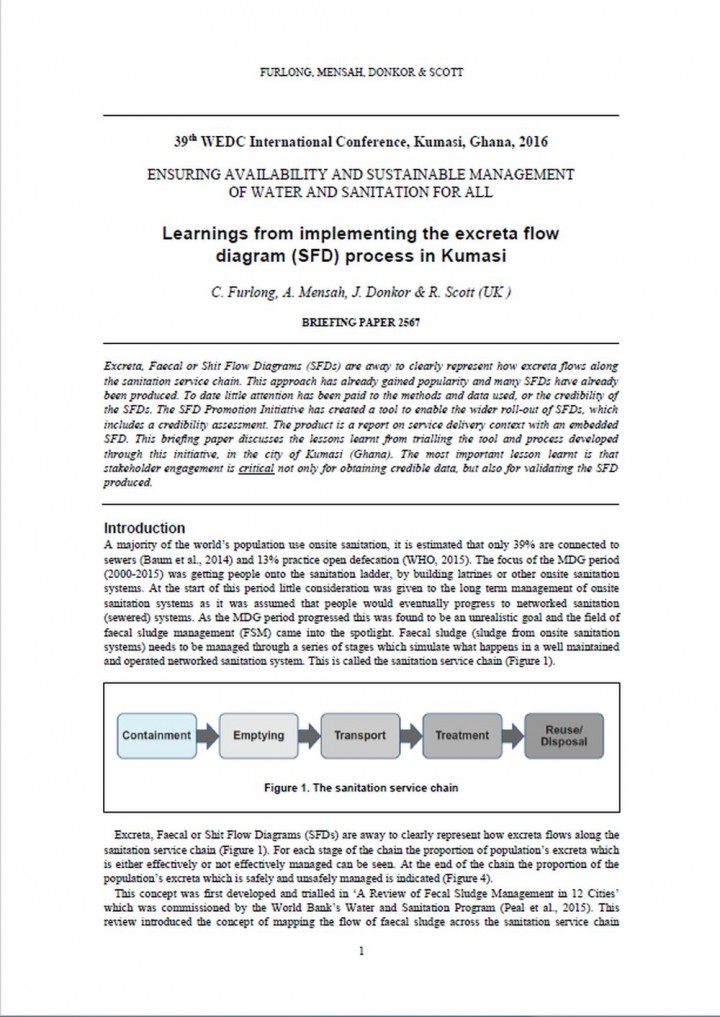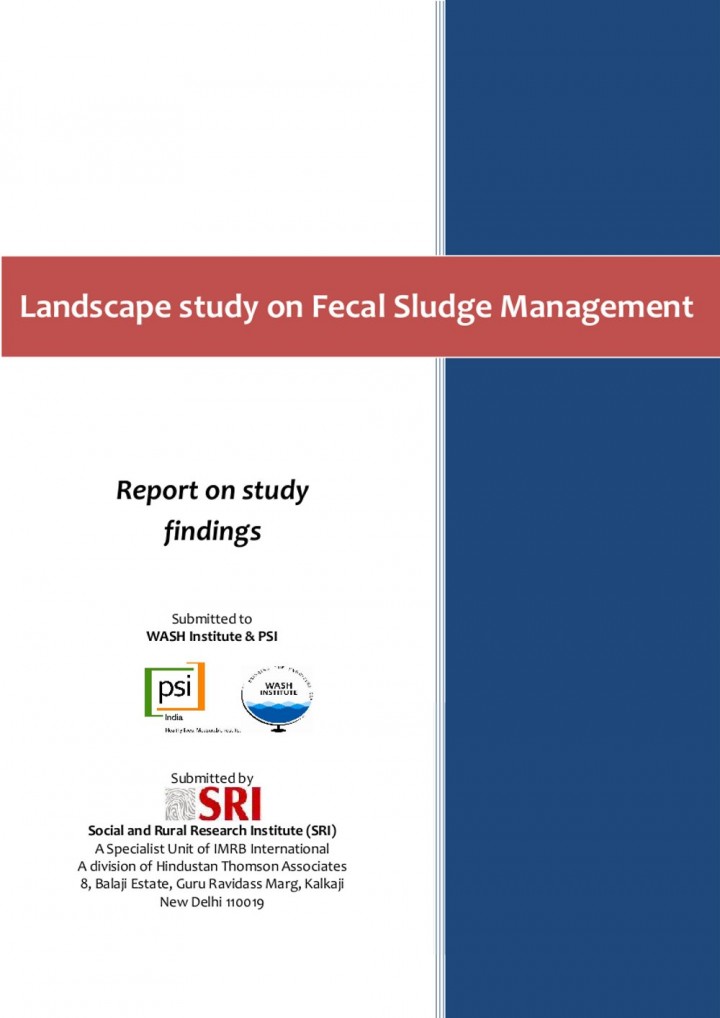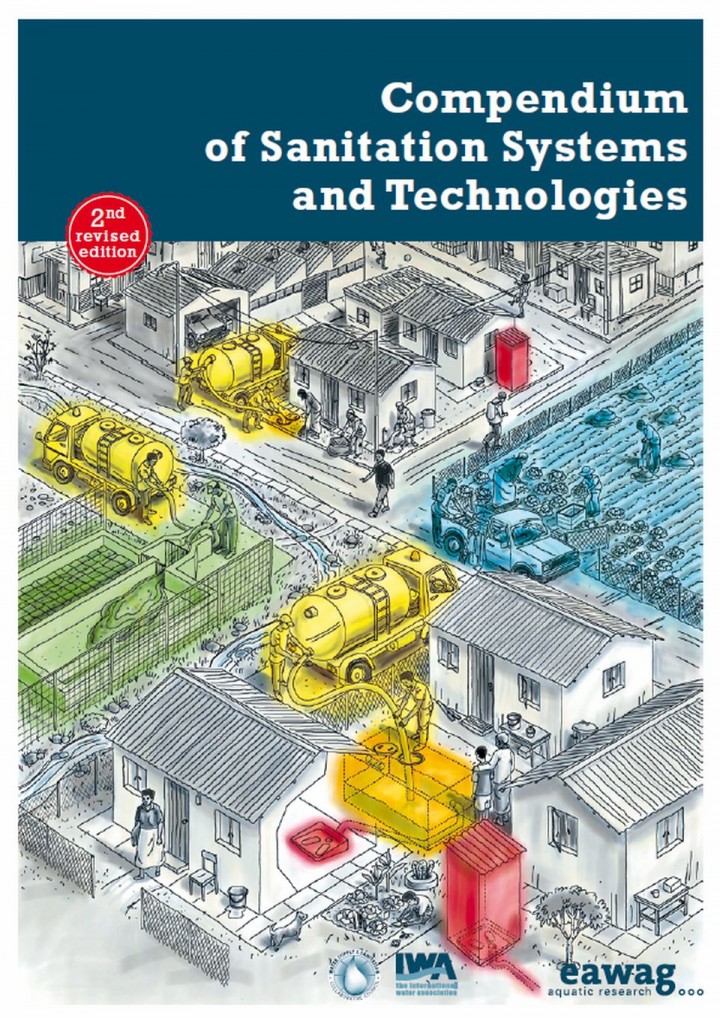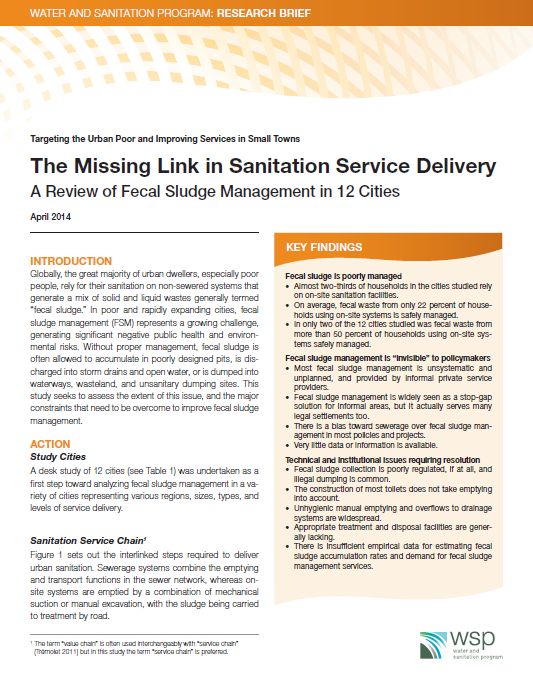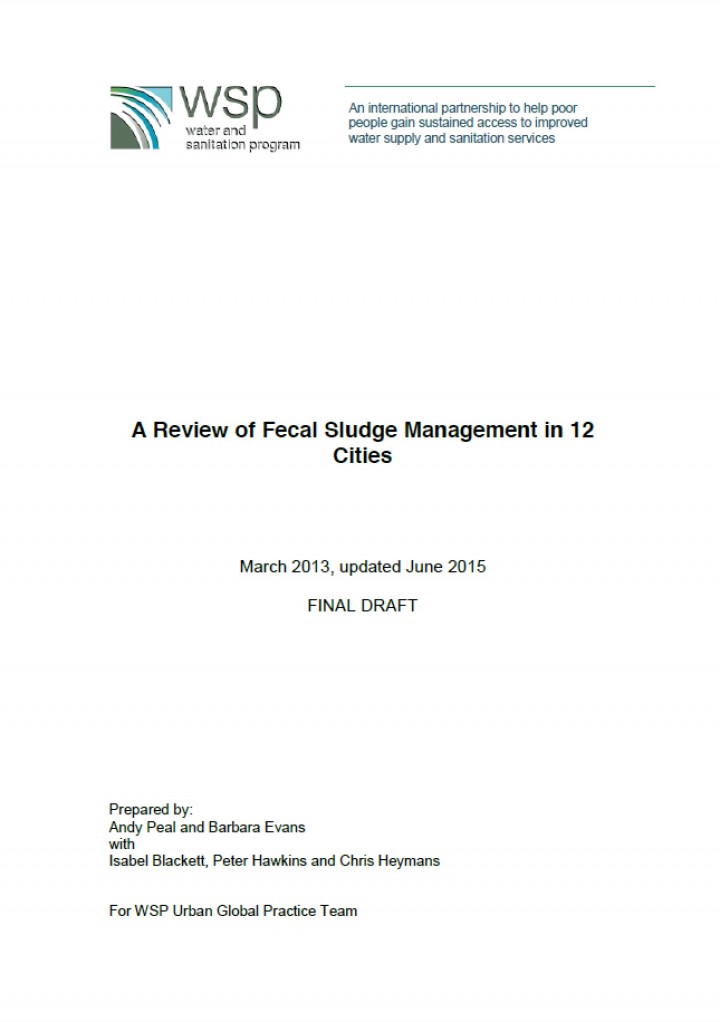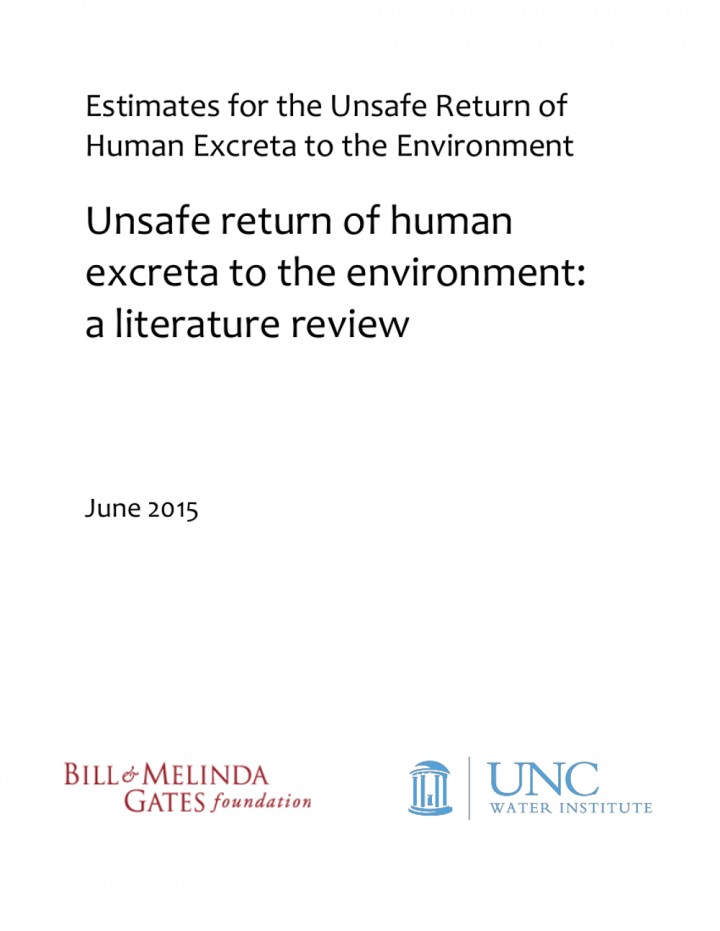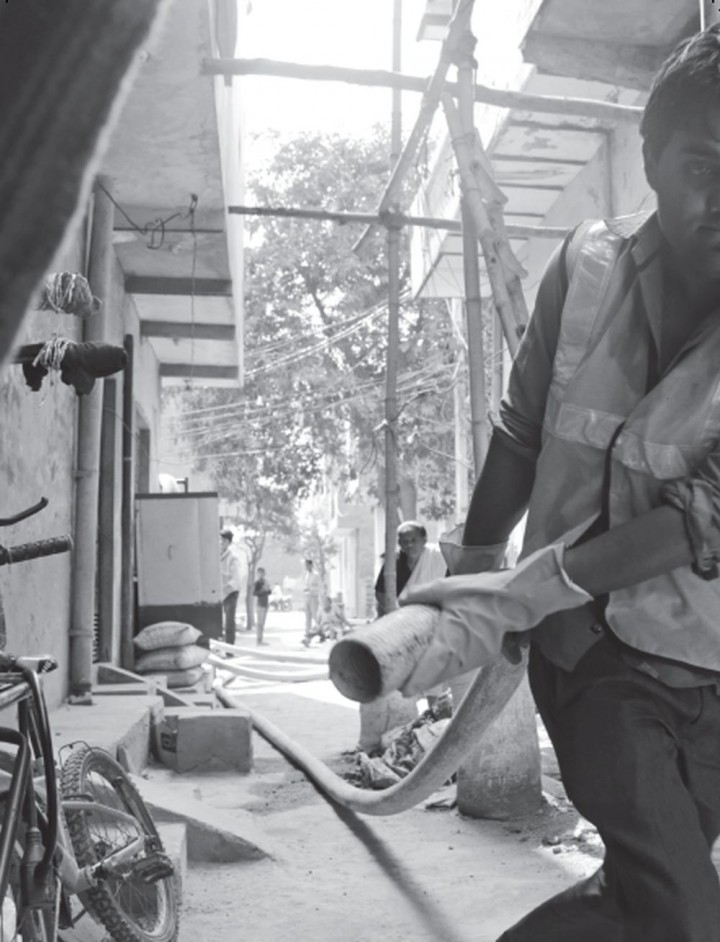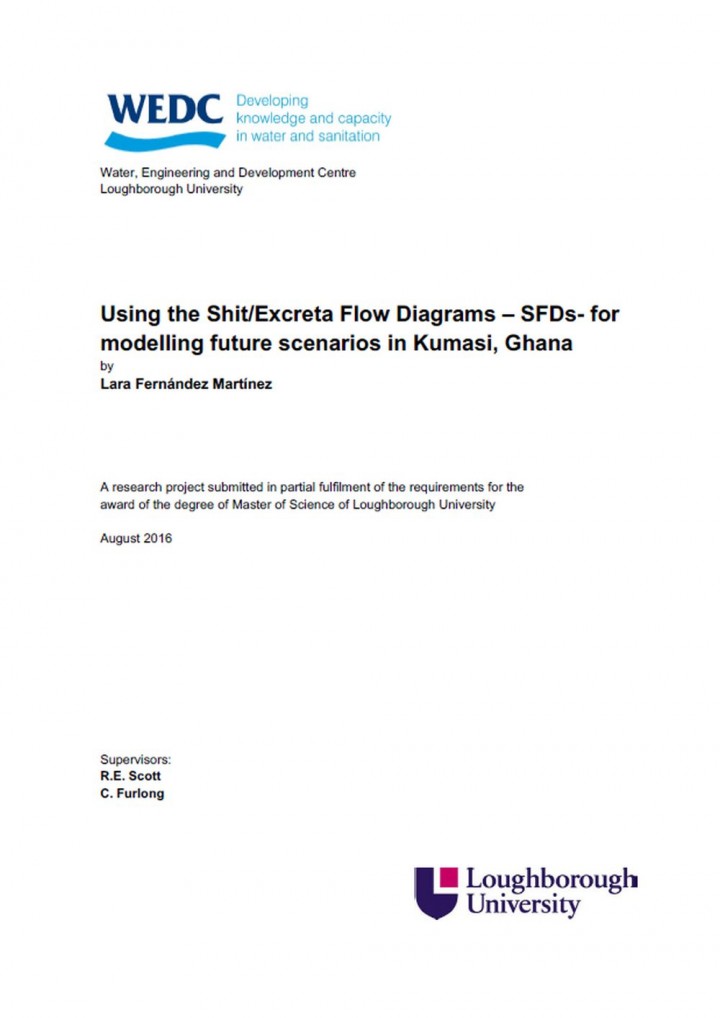
Fernández-MartÃnes, L., 2016
Using the Shit/Excreta Flow Diagrams (SFDs) for modelling future scenarios in Kumasi, Ghana
A research project submitted in partial fulfilment of the requirements for the award of the degree of Master of Science of Loughborough University
The high population density of the cities does not allow families to safely abandon onsite sanitation facilities. This creates a need for a sanitation service chain to safely manage feacal waste. Hence, Shit/Excreta Flow Diagrams (SFD) are being developed as an analysis tool, which illustrates excreta pathways along the sanitation service chain in a city. The main objective of this study is to use the SFD methodology to model four possible …



